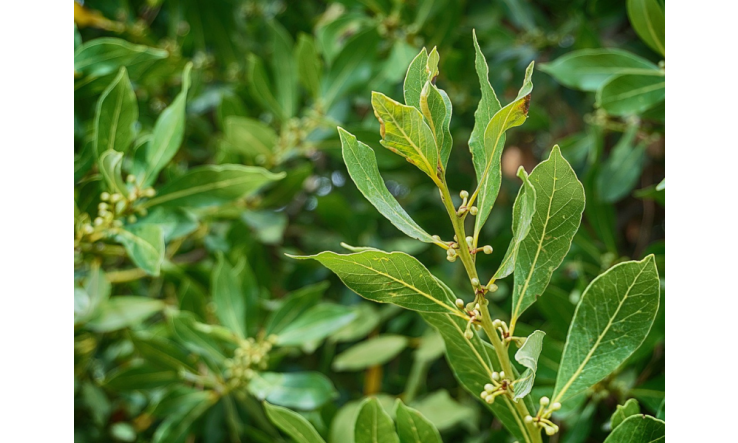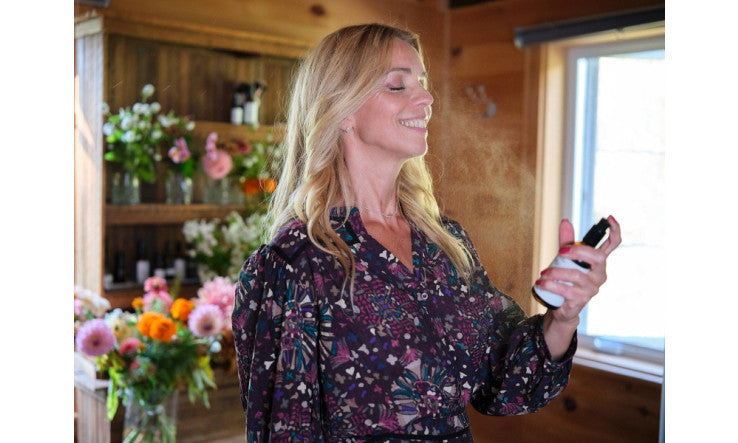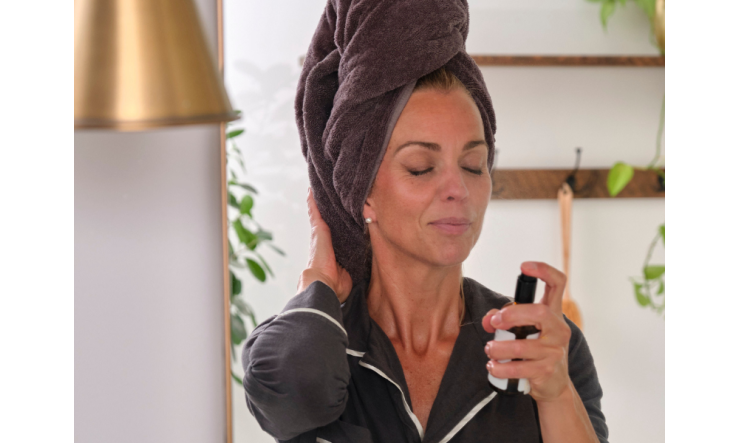Autumn often marks a difficult transition period for many of us. The decrease in natural light, the pace of work, and the return of shorter days can lead to a drop in mood known as seasonal depression. This disorder, also known as "seasonal affective disorder" (SAD), manifests itself as increased fatigue, a lack of motivation, and sometimes a loss of enthusiasm. Fortunately, certain essential oils are excellent allies in soothing this seasonal malaise, naturally boosting our mood and helping to restore emotional balance.
In this article, discover how essential oils can help you overcome the "grayness" of autumn. Combining practical usage tips and recipes, I'll guide you through ensuring this season remains a source of well-being and energy.
Seasonal depression, a seasonal illness that affects morale
The causes: an imbalance linked to light and daily rhythm
- Decreased natural light: Natural light plays a vital role in regulating our internal biological clock, also known as our circadian rhythm. This rhythm regulates sleep and wake cycles, mood, and appetite. When daylight is reduced, our internal clock can become disrupted, leading to increased fatigue and low mood. A lack of light also affects the pineal gland, which produces more melatonin, a sleep-inducing hormone. Too much melatonin can lead to feelings of drowsiness, even during the day, and a general lack of energy.
- Decreased serotonin production: Serotonin is a neurotransmitter essential for our well-being, often referred to as the happy hormone. It helps regulate mood, sleep, and appetite. Serotonin production is stimulated by natural light. Therefore, when light levels decrease, our bodies produce less serotonin, which can lead to feelings of sadness, irritability, and a depressed mood. This decrease in serotonin is directly linked to the symptoms of seasonal depression.
- Returning to Work and Seasonal Stress: Autumn often marks the return to a busy schedule, both at work and in one's personal life. The summer months, associated with a more relaxed lifestyle, give way to an increase in daily responsibilities and obligations. This return to stress, combined with the decrease in daylight, can accentuate the feeling of mental and physical fatigue, and therefore amplify seasonal depression.
- Lifestyle changes: Lower temperatures and shorter days often encourage a more sedentary lifestyle. Outdoor activities, sports, and time spent in the sun are reduced, limiting opportunities to recharge and relax. A sedentary lifestyle directly affects mood, as physical activity is known to stimulate endorphins, the "feel-good hormones," which help reduce stress and improve mood.
The consequences on daily life
- Persistent fatigue and low energy: One of the most prominent symptoms of seasonal depression is constant fatigue. This fatigue, often unexplained, is not necessarily relieved by rest. Affected individuals feel exhausted even after a good night's sleep, which reduces their motivation for daily activities and can lead to a form of lethargy. Even the simplest tasks become difficult, and the day seems endless.
- Sad mood and emotional fluctuations: Decreased serotonin production and hormonal imbalances lead to low mood. People suffering from seasonal depression often experience unexplained sadness, feelings of melancholy, or emptiness. This depressed mood is sometimes accompanied by irritability, anger, or frustration, making social and professional interactions more difficult. Frequent emotional fluctuations can also lead to low self-esteem.
- Sleep disturbances: Seasonal depression is often accompanied by sleep disturbances, mainly due to the increased production of melatonin, the sleep hormone. This increased production can disrupt sleep cycles, leading to prolonged nights of sleep or, paradoxically, insomnia. Affected individuals have difficulty waking up in the morning, feel sleepy during the day, and have difficulty falling or staying asleep.
- Changes in appetite and weight: Seasonal affective disorder is often associated with an increased craving for carbohydrates and sugary foods. This tendency is linked to a search for serotonin, as carbohydrates can temporarily increase its levels in the brain. As a result, it's not uncommon to experience weight gain during the fall and winter season, as well as feelings of frustration related to this compulsive eating.
- Decreased concentration and productivity: Seasonal depression also affects concentration and productivity. Persistent fatigue, depressed mood, and a lack of motivation make it more difficult to manage daily tasks, whether professional or personal. Those affected have difficulty concentrating, take longer to complete tasks, and may lose their creativity. This can also lead to a lack of confidence in the face of everyday demands.
- Impact on social and family relationships: Seasonal depression can also affect relationships. Irritability, decreased motivation, and depressed mood can make social interactions more difficult. Those affected may feel like they want to isolate themselves, limiting outings and time spent with loved ones. This can lead to feelings of loneliness and even relationship strain, as loved ones may not understand the effects of seasonal depression.
Four essential oils to chase away the gloom
Bergamot: The anti-depression ally to restore morale
Bergamot essential oil is known for its calming and comforting properties. It has a sweet, fruity, and slightly floral scent that promotes relaxation while gently uplifting mood.
Bergamot contains mainly limonene, a compound known for its anti-stress and mildly stimulating properties, as well as linalyl acetate, which has calming effects on the nervous system.
Thanks to its calming effect, bergamot essential oil helps reduce stress and anxiety, thus helping to reduce the symptoms of seasonal depression. It is often used to promote a positive mood and ease tension. It also stimulates the production of serotonin, the happy hormone, helping to compensate for the decline in this substance during the fall and winter.
- Helpful Hint: Add 5 to 8 drops of Bergamot essential oil to a diffuser (follow the instructions on the package insert). Diffuse for 15 to 20 minutes for a relaxing atmosphere, especially in the evening or during stressful times.
- Caution: Prohibited for pregnant women under 3 months and breastfeeding - Prohibited for children under 6 years old - Dilute before application to the skin - Do not apply to the skin before sun exposure, because Bergamot oil is photosensitizing.
Noble laurel: The confidence ally to regain motivation
Bay laurel essential oil is a powerful mental tonic, often used to boost self-confidence and regain motivation. Its scent is fresh, spicy, and slightly woody, making it an excellent choice for invigorating morale and strengthening determination.
Bay laurel contains mainly 1,8 cineole, a compound known for its stimulating properties for the mind and the respiratory system, as well as eugenol known for its tonic effects.
Thanks to its action on the nervous system, bay laurel essential oil helps reduce negative thoughts and the loss of motivation often associated with seasonal depression. This oil is also prized for its ability to soothe feelings of anxiety and discouragement. It is ideal for regaining self-confidence and motivation during times when mental energy and willpower are at their lowest.
- Helpful Hint: Place 1 to 2 drops of Bay Laurel essential oil on a tissue, then breathe deeply for a few minutes. This technique is ideal before an important meeting or a task requiring concentration and confidence.
- Caution: Prohibited for pregnant and breastfeeding women - Prohibited for children under 6 years old - Dilute before application to the skin - Not recommended for diffusion and inhalation for people with asthma.
Lemon: The energy ally to regain positivity
Lemon essential oil is a true ally against mental and physical fatigue linked to seasonal depression. Its lemony, fresh, and invigorating scent is perfect for energizing the body and mind.
Lemon mainly contains limonene, a compound known for its stimulating and refreshing effects that help restore energy and concentration.
Thanks to its stimulating action, Lemon essential oil promotes alertness and concentration. It helps combat mental fatigue and lack of motivation, while promoting a more positive mood. When diffused, it purifies the air and brings a feeling of freshness, ideal for combating ambient gloom. Lemon is also an excellent support for improving concentration and mental clarity.
- Practical advice: Diffuse 5 drops of Lemon essential oil in the morning for 15 minutes in your workspace or in a common room to start the day with energy and positivity.
- Caution: Prohibited for pregnant women under 3 months - Prohibited for children under 1 year - Dilute before application to the skin - Do not apply to the skin before sun exposure, as lemon oil is photosensitizing.
Scots Pine: The Invigorating Ally for Mind and Body
Scots pine essential oil is known for its stimulating effects on the body. Its woody, resinous scent is reminiscent of nature, providing a feeling of renewal and freshness that helps overcome fatigue.
Scots pine contains mainly monoterpenes, including alpha-pinenes and beta-pinenes, compounds known for their invigorating effects on the body and mind.
Thanks to its stimulating action, Scots Pine essential oil helps combat mental and physical fatigue, providing a boost of energy and a feeling of freshness. Its action on the respiratory tract promotes deep breathing, which can help reduce feelings of stress and anxiety. It is ideal for those seeking renewed energy and a sense of mental clarity during the cold season.
- Practical advice: Add 5 drops of Scots Pine to your diffuser (follow the instructions on the package insert). Diffuse for 15 to 20 minutes in a well-ventilated room, especially when you feel a drop in motivation or fatigue.
- Caution: Prohibited for pregnant and breastfeeding women - Prohibited for children under 6 years old - Dilute before application to the skin.
Recipes for Managing Seasonal Blues
Anti-Grey Broadcast: “Autumn Sun”
This diffusion synergy is designed to warm the atmosphere and illuminate your home with positive energy. Ideal for gray days, it brings a feeling of lightness and boosts morale.
Ingredients:
- 4 drops of Bergamot
- 3 drops of lemon
- 2 drops of bay leaf
Preparation :
- Pour the essential oils directly into your diffuser following the instructions.
Use :
- Diffuse this blend for 15-20 minutes in the room where you spend the most time for an immediate anti-darkness effect. You can also use it during your meditation sessions to enhance the calming effects.
General precautions:
- Do not leave the diffuser running continuously in an enclosed space, and be sure to ventilate the room well after diffusion, especially if children or pets are present.
Inhaler stick for morale: “Boost & Smile”
Designed for those moments of low mood, this inhaler stick will help you get back on track throughout the day with just a few breaths. Convenient to take with you, it can be used discreetly at any time.
Ingredients :
- 2 drops of Bergamot
- 2 drops of lemon
- 1 drop of bay leaf
- 1 drop of Scots Pine
Preparation :
- Soak the wick of an inhaler stick with essential oils.
Use :
- Breathe deeply into each nostril for a few seconds to experience an immediate effect of mental clarity and relaxation.
General precautions:
- Use this inhaler only occasionally and keep it out of reach of children.
Anti-blues roll-on: “Express Comfort”
This roll-on is perfect for massaging your wrists or temples when you're feeling down. The essential oils act as a real confidence booster and emotional calm.
Ingredients :
- 2 drops of Bergamot
- 2 drops of bay leaf
- 2 drops of Scots Pine
- 9 ml of Jojoba vegetable oil
Preparation :
- Pour the essential oils into a 10 ml roll-on bottle.
- Fill with vegetable oil to the top of the bottle.
- Shake gently to mix well.
Use :
- Apply to wrists and breathe deeply. You can also gently massage into temples for a soothing effect.
General precautions:
- Do not apply to sun-exposed areas due to Bergamot's photosensitivity. Keep this roll-on out of reach of children and avoid contact with eyes.
General precautions for the use of essential oils
- Dilution: Dilute essential oils before skin application to avoid irritation.
- Tolerance test: Before use, carry out a skin tolerance test by applying a small amount of the diluted synergy to the inside of the elbow and wait 24 hours to check for an allergic reaction.
- Do not use in children, pregnant or breastfeeding women without medical advice: It is imperative to consult the essential oils sheet and consult a health professional before any use in these specific cases.
- Precautions for medical conditions: People suffering from chronic illnesses (asthma, epilepsy, hypertension, etc.) should consult their doctor before using essential oils, as some may have adverse effects or be contraindicated with their treatment. Your doctor is the only primary player in your health.
- Beware of photosensitizing oils: Some essential oils, such as citrus oils (lemon, bergamot, grapefruit), can cause burns or skin spots if exposed to the sun after application. Do not use them before direct sun exposure.
- Avoid mucous membranes and eyes: Essential oils can cause severe irritation. In case of accidental contact, rinse thoroughly with a carrier oil, not water. Consult your doctor.
Seasonal depression can make the transition to fall difficult, with a drop in morale and energy that affects daily well-being. Essential oils offer natural solutions to counter these effects by bringing serenity, motivation, and vitality. Whether diffused, inhaler sticks, or roll-ons, these oils allow you to indulge in moments of well-being while promoting emotional balance.
Incorporating these essential oils into your routine can not only boost your mood, but also support your energy throughout the season. Remember to follow precautions for safe use and consult a professional if you have specific questions about their use. With the right practices, you can transform the fall season into a time of calm and positivity.
Sources of information (bibliography):
Françoise Couic-Marinier, Aromatherapy: Better living with your emotions with essential oils, self-hypnosis and meditation, Édition Terre vivante, March 16, 2021, 320 p., ISBN: 978-2360984848
Claire Lalande. Use of aromatherapy in insomnia and minor depression. Life Sciences
Study references:
Zhu MY, Dong WY, Guo JR, Huang JY, Cheng PK, Yang Y, Liu A, Yang XL, Zhu X, Zhang Z, Wang Y, Tao W. A Neural Circuit For Bergamot Essential Oil-Induced Anxiolytic Effects. Adv Sci (Weinh). 2024 Nov 2: e2406766. doi:10.1002/advs.202406766. Epub ahead of print. PMID: 39487959. https://onlinelibrary.wiley.com/doi/10.1002/advs.202406766
Lizarraga-Valderrama LR. Effects of essential oils on central nervous system: Focus on mental health. Phytother Res. 2021 Feb;35(2):657-679. doi:10.1002/ptr.6854. Epub 2020 Aug 29. PMID: 32860651. https://onlinelibrary.wiley.com/doi/10.1002/ptr.6854
Maison Jacynthe disclaims all liability. All information contained on this page is not intended to replace justified allopathic treatment or to disregard the expertise of the medical profession. It is up to each individual to take charge of their own health, to inform themselves, and to make the necessary changes to improve their condition. Therapeutic supervision by a qualified health professional is obviously recommended.


































































Leave a comment